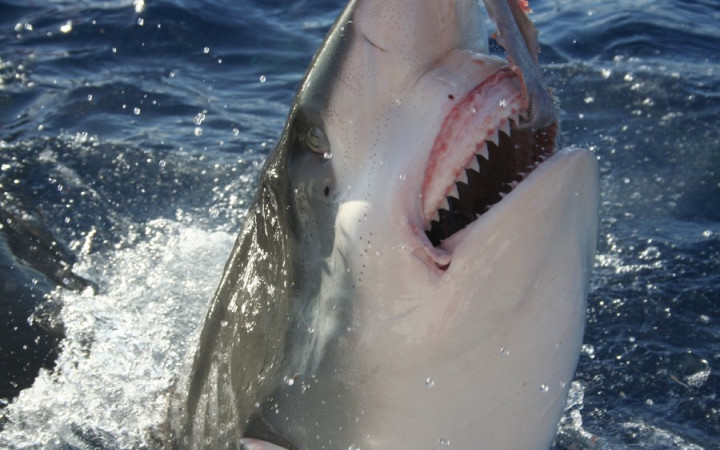Today’s Wonder of the Day was inspired by Maya from Fairfax, VA. Maya Wonders, “How many teeth do sharks have?” Thanks for WONDERing with us, Maya!
“Say cheese!" That's what you might say to a shark if you were trying to take an underwater selfie in the ocean. After all, sharks have all those nice shiny teeth. Their smiles must make for great photos, right?
What? You wouldn't want to take a selfie with a shark? Why not? Oh…all those sharp teeth…right. Gotcha. So just how many teeth do sharks have anyway?
As you might suspect, the number of teeth a shark has depends upon exactly what type of shark it is. There are many, many different types of sharks in the world's oceans, and the number of teeth they have can vary greatly.
For example, great white sharks have approximately 50 teeth at any one time (their “working" teeth). Like most sharks, however, they have multiple rows of teeth in development that are ready to take the place of teeth that fall out. Some sharks have over 300 teeth in various stages of development within their mouths at any one time!
Unlike human teeth, shark teeth are not very strong and tend to fall out easily. It's not a big deal for sharks, because they are constantly producing new teeth to replace the ones they lose. In fact, some sharks can have over 50,000 teeth over the course of their lives!
Many sharks have teeth in layered rows. Both their upper and lower jaws can have 2-3 or as many as 15 such rows. Their teeth do not have roots, so they break off easily and may last as little as a week. New teeth can move forward to replace lost teeth within a day to a couple of weeks. The skin within a shark's mouth moves new teeth into position like a conveyor belt.
Although it might sound like a bad thing to be constantly losing teeth all the time, this system works well for sharks. Over history, sharks have developed extremely strong jaws that give them the powerful bite that makes them the apex predators of the oceans.
When they bite into a tasty meal, they usually lose several teeth. If they couldn't replace those teeth easily, it would do them no good to have such a powerful bite. So the ease with which they can replace teeth has actually helped sharks to develop the strong bite that defines them.
Since sharks go through so many teeth over the course of their lives, fossilized shark teeth can be easy to find along the shores of many beaches. Shark tooth hunting has become a popular pastime for visitors to beaches with plentiful shark teeth.




